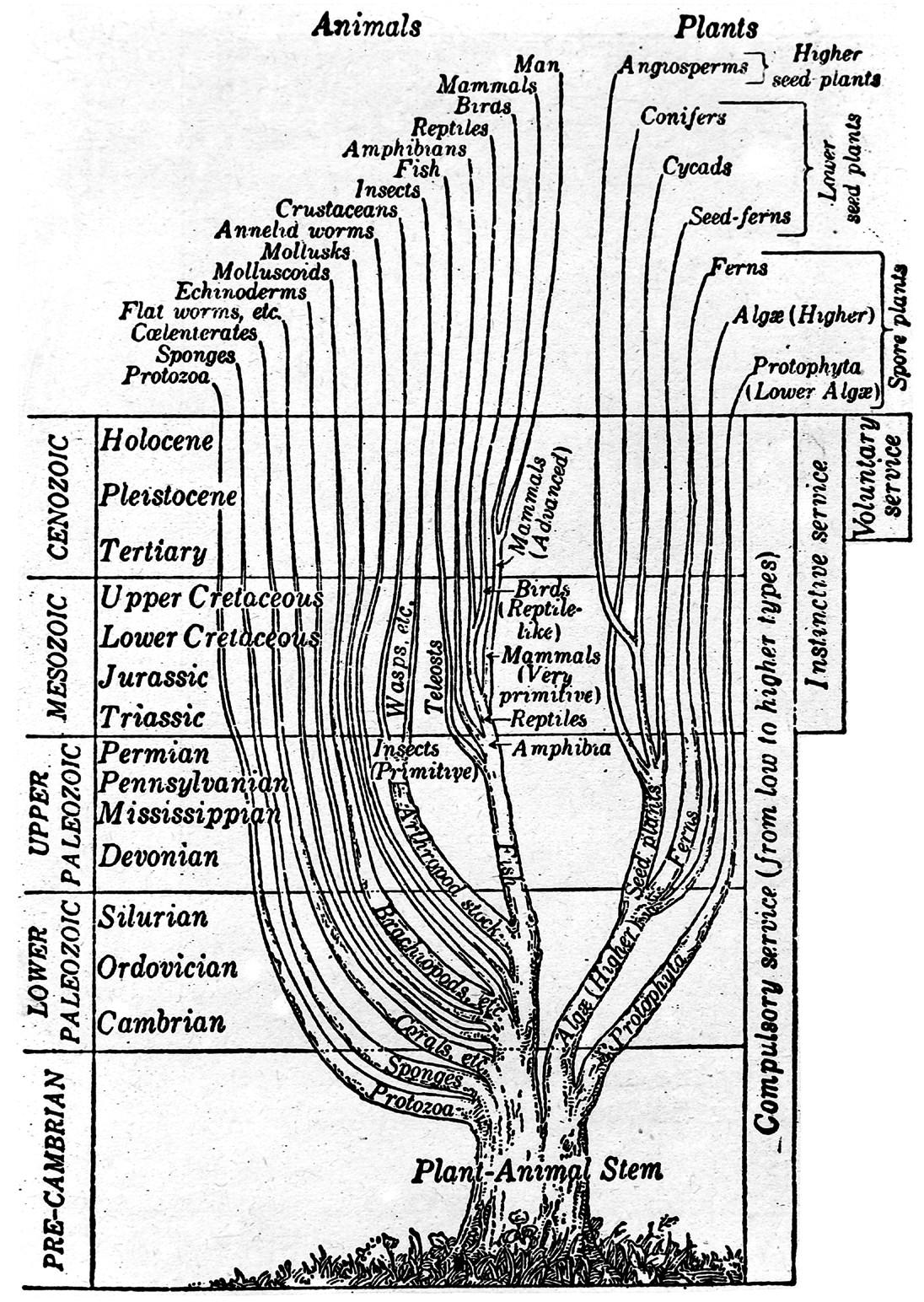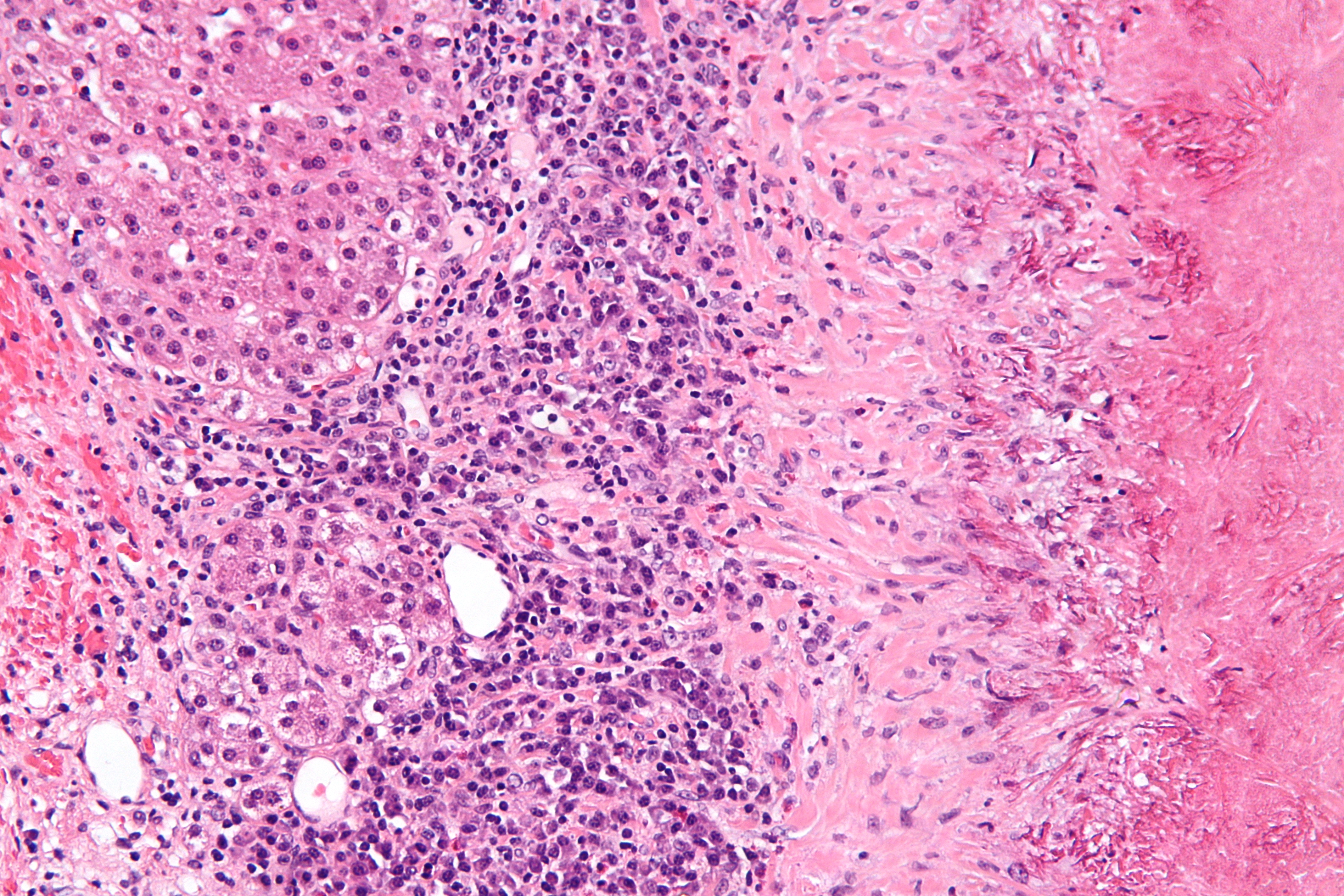Difference between revisions of "Main Page/Featured article of the week/2015"
Shawndouglas (talk | contribs) (Added last week's article of the week.) |
Shawndouglas (talk | contribs) (Added last week's article of the week.) |
||
| Line 17: | Line 17: | ||
<!-- Below this line begin pasting previous news --> | <!-- Below this line begin pasting previous news --> | ||
<h2 style="font-size:105%; font-weight:bold; text-align:left; color:#000; padding:0.2em 0.4em; width:50%;">Featured article of the week: January 12–18:</h2> | <h2 style="font-size:105%; font-weight:bold; text-align:left; color:#000; padding:0.2em 0.4em; width:50%;">Featured article of the week: January 19–25:</h2> | ||
<div style="padding:0.4em 1em 0.3em 1em;"> | |||
<div style="float: left; margin: 0.5em 0.9em 0.4em 0em;">[[File:Tree, plant and animal stem. Wellcome M0001295.jpg|130px]]</div> | |||
'''[[Evolutionary informatics]]''' is a sub-branch of [[informatics]] that addresses the algorithmic and technological tools (like information and analytical systems) needed to better manage data from research in ecology and evolutionary biology and answer evolutionary questions. As in [[bioinformatics]] and [[genomics]], scientists studying biological evolution have gathered an increasingly large volume of information, resulting in information management problems. Additionally, as bioinformatics and genomics are pertinent to the study of evolution, utilization of information from those areas is of concern in evolutionary informatics. | |||
Evolutionary informatics has evolved out of a wide variety of scientific, mathematical, and computational endeavors, including evolutionary biology, evolutionary computation, algorithmic and evolutionary algorithmic research, and software development. It can help tackle problems and tasks such as reducing "the growing number of lineages that lack formal taxonomic names," digitizing and semantically enhancing legacy biodiversity data while also making it more portable, and building "sustainable digital community repositories that provide access to rich data and metadata" in the field of evolutionary biology. ('''[[Evolutionary informatics|Full article...]]''')<br /> | |||
</div> | |||
|- | |||
|<br /><h2 style="font-size:105%; font-weight:bold; text-align:left; color:#000; padding:0.2em 0.4em; width:50%;">Featured article of the week: January 12–18:</h2> | |||
<div style="padding:0.4em 1em 0.3em 1em;"> | <div style="padding:0.4em 1em 0.3em 1em;"> | ||
<div style="float: left; margin: 0.5em 0.9em 0.4em 0em;">[[File:NIST Testing standard interfaces.jpg|200px]]</div> | <div style="float: left; margin: 0.5em 0.9em 0.4em 0em;">[[File:NIST Testing standard interfaces.jpg|200px]]</div> | ||
Revision as of 17:42, 25 January 2015
|
|
If you're looking for the 2014 archive, it can be found here. |
Featured article of the week archive - 2015
Welcome to the LIMSwiki 2015 archive for the Featured Article of the Week.
Featured article of the week: January 19–25:Evolutionary informatics is a sub-branch of informatics that addresses the algorithmic and technological tools (like information and analytical systems) needed to better manage data from research in ecology and evolutionary biology and answer evolutionary questions. As in bioinformatics and genomics, scientists studying biological evolution have gathered an increasingly large volume of information, resulting in information management problems. Additionally, as bioinformatics and genomics are pertinent to the study of evolution, utilization of information from those areas is of concern in evolutionary informatics. Evolutionary informatics has evolved out of a wide variety of scientific, mathematical, and computational endeavors, including evolutionary biology, evolutionary computation, algorithmic and evolutionary algorithmic research, and software development. It can help tackle problems and tasks such as reducing "the growing number of lineages that lack formal taxonomic names," digitizing and semantically enhancing legacy biodiversity data while also making it more portable, and building "sustainable digital community repositories that provide access to rich data and metadata" in the field of evolutionary biology. (Full article...)
|













